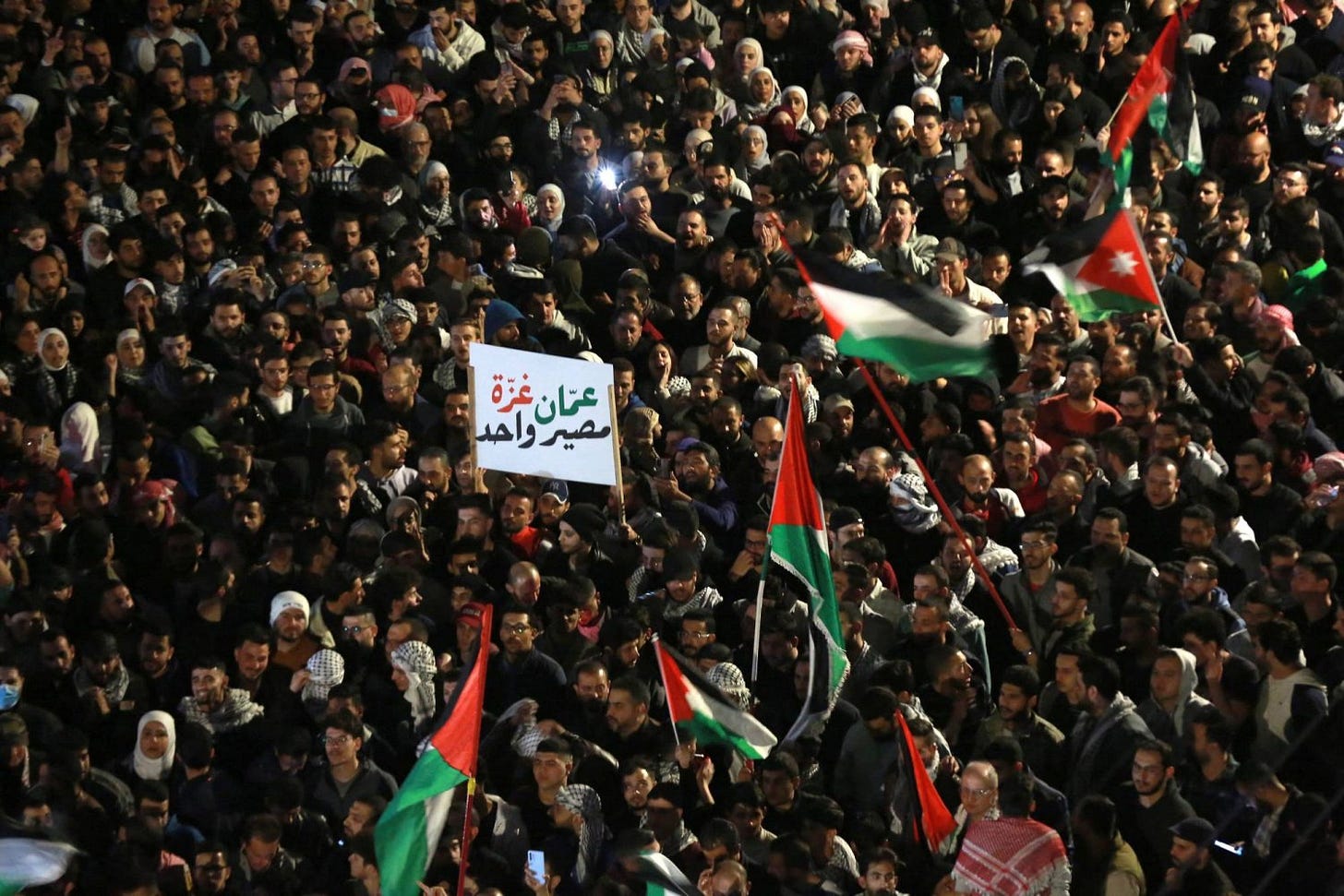Jordan is running out of time before it enters a new phase of political instability
The US needs to consider the long-term stability of the political system in Jordan as part of its calculations regarding the cost of Gaza war.
Daily protests have taken place in Amman since 7 October, with a number of occasions resulting in widespread unrest. In recent weeks, however, tens of thousands of protesters have consecutively targeted the Israeli Embassy in spite of arrests and tear gas, displaying a greater level of coordination and mobilisation, and marking a shift in the Palestine solidarity movement.
Greater dissent in Jordan is expected due to the close links with Palestine and the evidently unpopular normalisation policy. What is not predictable is how this might emerge into a credible opposition movement to pose a greater challenge to the monarchy’s hold on the country and whether Palestine solidarity mobilisation will evolve into a second ‘Arab Spring’ or the emergence of Islamic Resistance factions.
Two strains of regional forces are poised to exert influence in Jordan at this time: Islamic resistance forces led by Iran and the Muslim Brotherhood. Both ideational forces have taken root in the country for some time, with the latter being widely popular amongst Jordan’s Islamistst; together, they may present a united front in the context of opposition against Israel and attempt to capitalise on widespread dissatisfaction, particularly regarding long-standing economic issues.
On 1 April, a statement on Telegram issued by the leader of the “Hezbollah Brigades” said “Islamic Resistance in Iraq has prepared its equipment to equip the Islamic Resistance in Jordan, this will meet the needs of 12,000 fighters with light and medium weapons, anti-tank bombers, tactical missiles, millions of ammunition, and tons of explosives”. On 4 April, according to unconfirmed sources, the Islamic Resistance in Iraq smuggled the first batch of small to medium weapons across the Jordanian border to new resistance fighters.
While this is likely to add significant additional pressure on the political stability the establishment currently enjoys and an added strain on the country’s security apparatus, it is unlikely to have material impacts on the wider efforts against Israel. Emerging resistance fighters in Jordan have greater constraints on their operational capability than those in Iraq, due to more stringent enforcement from Jordan’s military and intelligence services. However, in the future, if such forces strengthen their grip, Jordan might become a point for friction with Israel.
Despite the proximity to Israel, it's unlikely that those in Jordan will be able to do anything that Iraqi groups can’t, making the establishment of Islamic Resistance in Jordan largely symbolic at this point, like most of Iraq’s role in the conflict so far. Additionally, the tendency of new groups to focus inward may limit their impact, resulting in heightened internal pressure on the Jordanian state in the short to medium term. The US needs to consider the long-term stability of the political system in Jordan as part of its calculations regarding the cost of prolonging the war in Gaza or risk losing an important ally where many strategic and operational US military assets are stationed.


